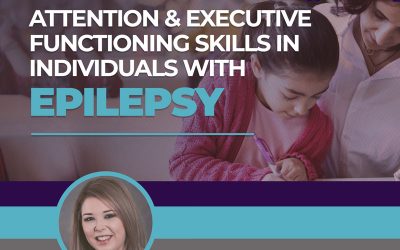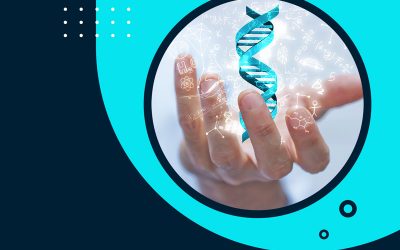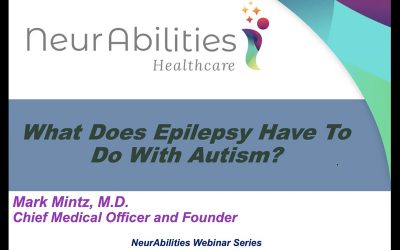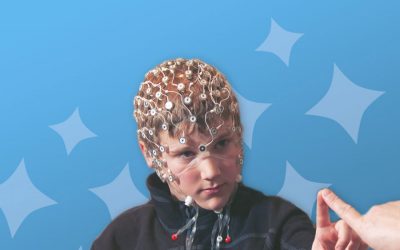EPILEPSY AWARENESS
Information and Resources
million people with epilepsy nationwide
%
population with active epilepsy (2015)
%
overlap with autism diagnoses
Ask The Experts
HIDDEN
How is a neuropsychologist important to an epilepsy patient?
Individuals with epilepsy may experience weaknesses or difficulties in learning, mood, attention and behavior that can interfere with functioning in everyday life. A neuropsychologist can help to understand how a person learns and sees the world. This information can be used to develop recommendations to support an individual’s ability to reach their goals and be successful.
How does the interdisciplinary model of NeurAbilities benefit a patient with epilepsy?
Due to the unique needs of individuals with epilepsy, it is not unusual for an individual to require care from multiple specialties. For the pediatric patient, especially, it is important that neurology and neuropsychology experts work collaboratively. At NeurAbilities, patients are able to benefit from a collaborative approach, allowing multiple professionals involved in a child’s care to communicate directly and provide coordinated care.
How do I explain neuropsychological testing to my child?
Generally, the best way to describe the evaluation process is to tell children that they will be meeting with a doctor who will want to get to know them. I like to describe the testing process as my opportunity to understand how a child learns and sees the world. For many children, it can be helpful to avoid the word “test” and describe the process as “activities.” It can also be a good idea to plan something fun for you and your child to do at the end of the appointment (e.g., going out to lunch) to give them a reward for their hard work.
HIDDEN
What can I expect from neuropsychological testing?
Generally, we meet with children and their families for two appointments lasting about three hours each. On the first day of the assessment, we meet with the child and parents together to introduce ourselves, explain the testing process, and answer any questions. We also use this time to gather information about what areas may be of concern to best understand how to tailor the assessment to the needs of the individual.
What can I learn from the results of neuropsychological testing?
Neuropsychological assessment can provide a detailed overview of an individual’s unique strengths and weaknesses. This can include an understanding of an individual’s language, verbal and nonverbal reasoning, fine motor skills, attention, executive functioning skills, memory, academic abilities, emotional regulation, and social skills. This information can be used to identify the supports a child requires at home and in school.
HIDDEN
What is Epilepsy?
Epilepsy is a neurological (brain) disorder of abnormal brain activity characterized by a predisposition for recurrent seizures. Seizure symptoms can vary widely, including convulsions, periods of unusual behavior, unusual sensations or perceptions, impaired or loss of motor control, involuntary movements, and/or loss of awareness or consciousness. There are many neurobiological, cognitive, psychological, and social consequences of epilepsy. Not all seizures are epileptic.
How does a neurologist evaluate if I have epilepsy?
A neurology evaluation is an important first step in understanding if you have epilepsy. At an initial visit, there will be an exploration about the details and circumstances of any symptoms that are concerning for seizures, as well as obtaining a complete and comprehensive medical, neurological, neurodevelopmental, neuropsychiatric, and family history, accompanied by a physical and neurological examination. From this information, further neurodiagnostic testing may be recommended, including high-density electroencephalography (HD-EEG, a brain wave test), magnetic resonance imaging (MRI, providing details of brain anatomy), genetic testing (assessing for genetic variants or mutations causing or contributing to epilepsy), laboratory testing, neuropsychological evaluation, and other potential tests or evaluations.
What kinds of treatments are used for treating epilepsy?
The first step is to determine, identify, and treat an underlying biological or other cause for seizures. To control seizures, there are a wide array of pharmacological options (medications), as well as non-pharmacological treatments, such as supplements, specialized diets, and in certain cases, brain stimulators and surgeries.
HIDDEN
Why is HD-EEG an important component of diagnosis and treatment?
Neurons (brain cells) are the source of normal and abnormal electrical brain activity. HD-EEG is able to record neuronal activity in real time, and non-invasively. Such an “electrical image” of the brain is useful for identifying and localizing abnormal brain activity that has the potential to generate epileptic seizures, and assists in the diagnosis and treatment of epilepsy. HD-EEG recording sessions also involve video recording of the patient for real time matching of brain activity with movement.
HIDDEN
What can I expect from my HD-EEG Visit?
How do I explain to my child what will happen during an HD-EEG visit?
Education Center
Attention & Executive Functioning Skills in Individuals with Epilepsy
In this webinar, the Epilepsy Foundation of Eastern PA partnered with NeurAbilities to cover common issues with attention and executive functioning...
5 Questions Answered: Genetic Testing
Answers provided by Richard Boles, MD Medical Geneticist, Director of Neurogenomics Program How do I know if we need genetic testing? Conditions that...
Child Development Information and Resources
Your free guide to: tracking your child’s developmental milestones, answers to frequently asked questions provided by expert doctors, tips for fostering...
Medication Treatments: Making the Decision
If you are reading this, then most likely you are considering treating your child for a neurobehavioral disorder, such as ADHD, anxiety, aggression,...
Hope Talks – What Does Epilepsy Have To Do With Autism?
Presented by Mark Mintz, M.D., Chief Medical Officer Epilepsy can occur in up to 40% of individuals with Autism Spectrum Disorders (ASD), and is an increasing...
All About HD-EEG Technology
Contributed by Jeff Keating, Senior Scientist at NeurAbilities Healthcare HD-EEG stands for High Density Electroencephalogram. ‘Electro’ is easy enough to...
Community Resources
HIDDEN
Educational Materials
From the CDC
HIDDEN
Connect With the Community
Support Services
Feedback?
If you have feedback for this page, including additional materials to include, feel free to contact us via the button below…
Quick Links
New Patient Appointments
Information
Our Mission
To transform the lives of patients through precision medicine, behavior sciences, and therapeutic treatments with compassion, dignity, and respect.
Our Vision
Our Values
Join Our Newsletter
Receive program updates and educational materials on a variety of topics.
NOTICE: This website is for informational purposes only and is not intended as medical advice or as a substitute for a patient/physician relationship.
NeurAbilities Healthcare does not exclude, deny benefits to, or otherwise discriminate against any person on the grounds of race, color, or national origin, or on the basis of disability or age in admission to, participation in, or receipt of the services and benefits of any of its programs and activities or in employment therein. This statement is in accordance with the provisions of Title VI of the Civil Rights Act of 1964, Section 504 of the Rehabilitation Act of 1973, the Age Discrimination Act of 1975, and Regulations of the U.S. Department of Health and Human Services issued pursuant to the Acts, Title 45 Code of Federal Regulations part 80, 84, and 91.
© NeurAbilities Healthcare. 2025. The NeurAbilities Logo is a registered trademark.











